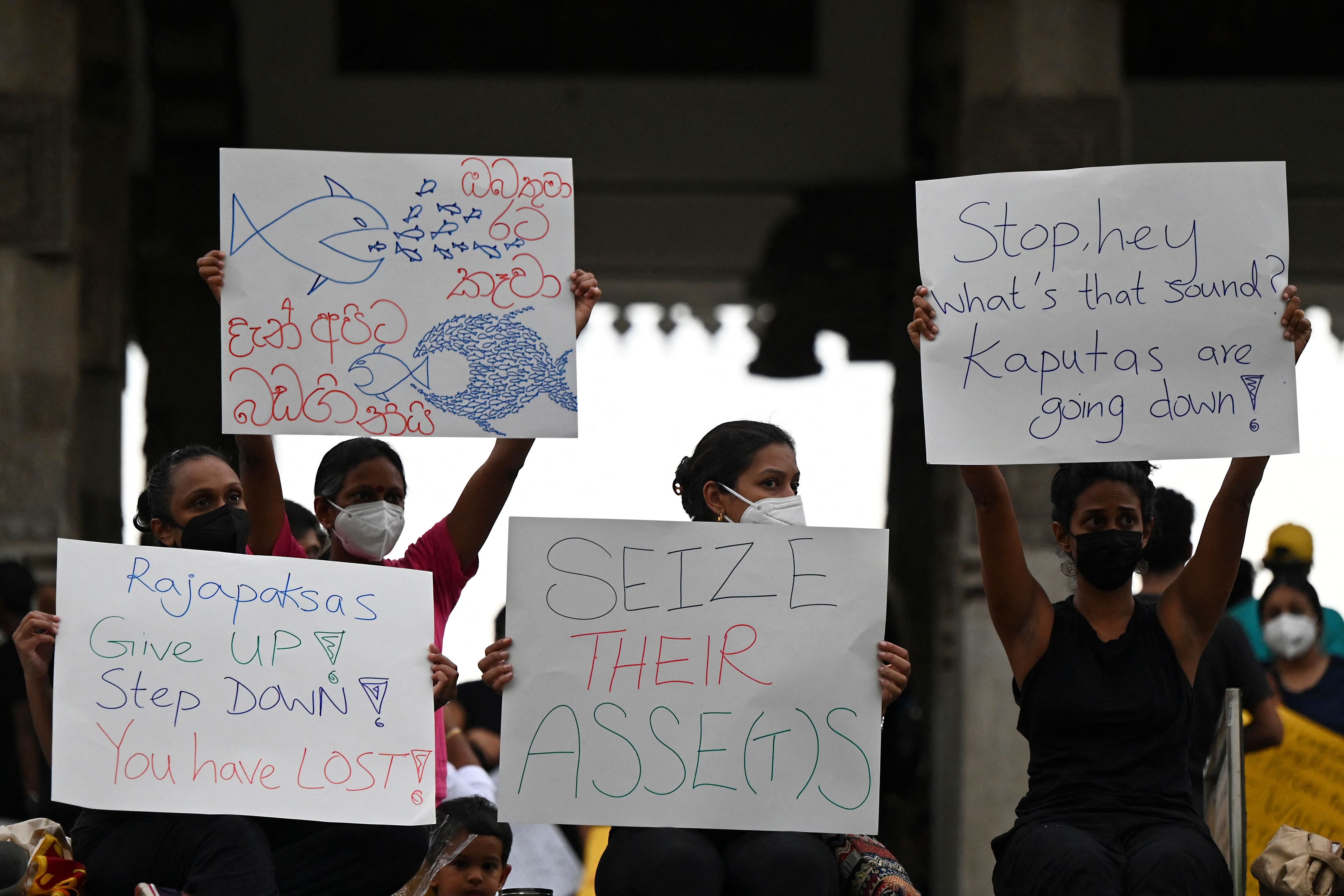Sri Lankan politician warns of imminent starvation in the backdrop of political and economic crisis
Sri Lanka has been reeling under an unprecedented economic crisis
Sri Lanka is staring at an imminent threat of starvation amid a crippling economic and political crisis, the speaker of the country's parliament has warned.
Addressing the parliament on Wednesday, speaker Mahinda Yapa Abeywardana said “food, gas and electricity shortage will get worse” as the country of 22 million people was going through “just the beginning” of the crisis.
“There will be food shortages and starvation,” Mr Abeywardana told the House.
Following Mr Abeywardana’s remarks, protesting students barged into the country’s health ministry.
“The country's future is at stake. They are handing out allied health services degrees like items in shops,” a student told the Times of India.
For weeks, Sri Lankans have faced a shortage of food, fuel and prolonged power cuts up to 13 hours a day due to an unprecedented economic crisis brought about by a shortage of foreign exchange reserves to finance essential imports.
People across the country can be seen waiting in serpentine queues for hours to purchase essentials such as groceries and oil at an hiked price. Sri Lanka’s reserves dropped 16.1 per cent to $1.93 bn (£1.47 bn) in March from a month earlier, the central bank said on Thursday.
In February, the country's inflation hit 15.1 per cent, with food inflation soaring to 25.7 per cent according to the government's data.
The crisis plunged the Sri Lankan rupee to become the world’s worst-performing currency on Wednesday.

Thousands of civilians poured onto the streets of the capital Colombo in protest against Sri Lankan president Gotabaya Rajapaksa, who has refused to resign from office. There has been a steady cry for the president's resignation, along with his brother prime minister Mahinda Rajapaksa, and other members of the Rajapaksa family in the government.
Though the president said he would not resign “under any circumstances”, scores of members of parliament have already quit, and nearly all Cabinet ministers were forced to resign.
Earlier this week, 41 members of parliament left the president’s coalition government to “represent themselves independently”. Deepening the political chaos, the newly-appointed finance minister of the country Ali Sabry also tendered his resignation on Tuesday.
Experts say that the country’s usable foreign reserves are said to be less than $400m (£305.6 m) and it has $7bn (approx £5.3 bn) in foreign debt obligations for this year alone.
Join our commenting forum
Join thought-provoking conversations, follow other Independent readers and see their replies
Comments
Bookmark popover
Removed from bookmarks